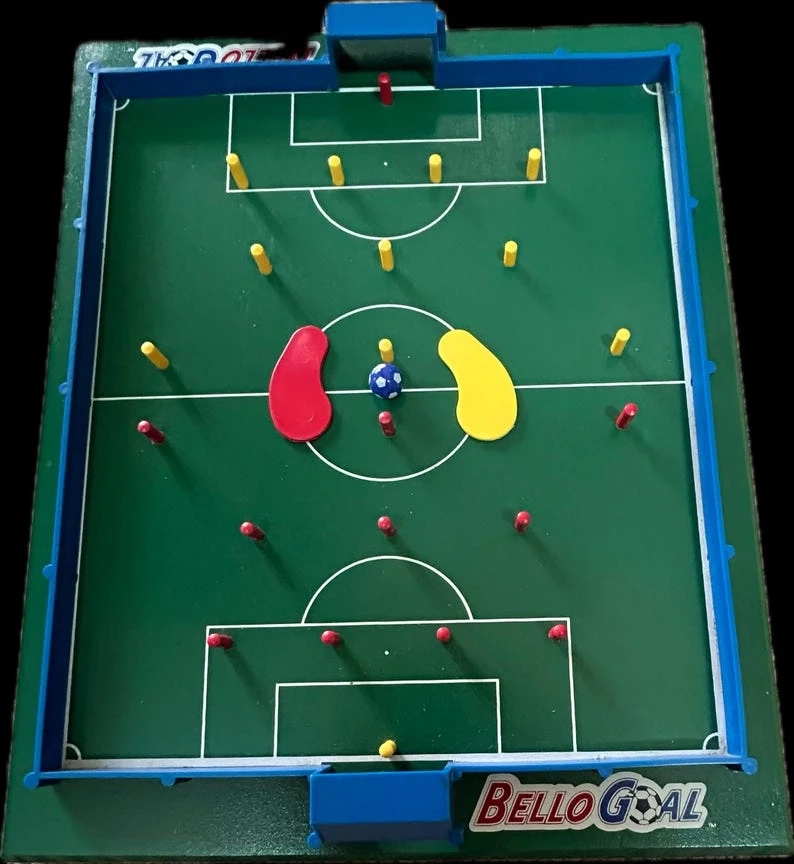Board games have always been a timeless way to bring people together. They combine entertainment with learning, offering an engaging experience for both children and adults. For individuals with diverse abilities, board games are more than just play; they are a pathway to learning, communication, and inclusion. Among the many types of games, a soccer board game stands out as an innovative way to merge the world’s most popular sport with accessibility and inclusivity.
This post explores the benefits of such games, the role of soccer in creating inclusive play, the essential features of an accessible board game, and how these games can support education, therapy, and social connection.
Why Board Games Matter for Special Needs
Board games provide structure and enjoyment while fostering important developmental skills. For individuals with special needs, they also create safe spaces to explore social interaction and self-expression.
Some of the main benefits include:
● Known: Playing strategy-based games strengthens memory, planning, and decision-making skills.
● Social Interaction: Turn-taking, sharing, and communicating during gameplay help players build stronger relationships.
● Emotional Support: Games reduce anxiety, provide encouragement, and help players cope with challenges in a positive way.
● Fine Motor Skills: Handling pieces, dice, or cards improves hand-eye coordination and dexterity.
By adapting these benefits into a soccer board game for special needs, children and adults alike can connect with the excitement of sports in a way that feels engaging, accessible, and inclusive.
The Role of Soccer in Inclusive Play
Soccer is more than a sport; it’s a global language. It unites people across cultures, age groups, and abilities. But for individuals with physical limitations or developmental challenges, participating in a full soccer match may not always be possible. A board game version bridges this gap.
With a soccer-themed board game, players can experience the thrill of passing, scoring, and competing without the need for physical exertion. The shared experience of cheering for goals and celebrating victories helps individuals feel included in the fun of the sport. This inclusive design ensures that no one is left out, regardless of their abilities.
Key Features of an Inclusive Soccer Board Game
1. Simple Rules
Clear, straightforward instructions are essential. Using visual aids, symbols, or step-by-step guides ensures that players of varying abilities can understand the rules quickly and start playing without frustration.
2. Adjustable Difficulty Levels
The best games allow players to choose from different levels of complexity. Beginners can enjoy simplified rounds, while advanced players can engage in longer, more strategic sessions. This adaptability keeps the game fun for all participants.
3. Accessible Components
Pieces should be large, colorful, and easy to handle. Tactile elements can help players with visual impairments, while spinners or cards can replace dice for individuals who struggle with fine motor control.
4. Team-Oriented Gameplay
Since soccer is fundamentally a team sport, the board game should promote teamwork as well as competition. Cooperative play not only makes the game more inclusive but also teaches valuable lessons about working together.
5. Built-In Learning Opportunities
Educational features such as counting spaces, solving challenges, or answering trivia about soccer can be seamlessly incorporated. These turn the game into both a fun and enriching experience.
Educational Benefits
One of the strongest advantages of a soccer board game for special needs is its ability to teach while entertaining. Here’s how:
● Math Skills: Players practice counting moves, calculating scores, and using simple arithmetic during play.
● Language Development: Explaining rules, discussing strategies, and celebrating wins help expand vocabulary and communication skills.
● Critical Thinking: Choosing moves and planning ahead promotes logical reasoning and problem-solving.
● Cultural Awareness: Since soccer is a global sport, the game can introduce trivia, geography, or cultural facts, broadening awareness.
In this way, children practice real-world skills in a setting that feels natural and enjoyable.
Social Connection Through Play
Soccer board games for special needs are inherently social, designed to bring people together. For individuals with special needs, this is especially valuable. Playing a soccer-themed board game encourages:
● Interaction with family, friends, or classmates.
● Confidence in group settings.
● Practice of teamwork and sportsmanship.
● Opportunities to celebrate success collectively.
Family game nights or classroom activities centered around such a game can strengthen relationships while making everyone feel included.
Therapeutic Applications
Inclusive board games are not just for leisure; they can also serve as tools in therapy. Many professionals use games to support physical, emotional, and social development. A soccer-themed game can help in:
● Occupational Therapy: Improving motor coordination and spatial awareness.
● Speech Therapy: Encouraging players to communicate during turns, describe moves, and interact with others. This practice supports vocabulary building, sentence formation, and expressive language while keeping the activity fun and engaging.
● Behavioral Support: Teaching patience, self-control, and coping with both winning and losing.
Because soccer often sparks enthusiasm and familiarity, it motivates participants to stay engaged during therapy sessions.
Encouraging Inclusivity and Fun
The goal of a soccer board game for special needs is much bigger than play; it’s about building bridges. By blending the universal appeal of soccer with the accessibility of board games, such tools empower individuals of all abilities to enjoy the thrill of sport, learn valuable skills, and connect with others.
When families, educators, and therapists embrace inclusive games, they create opportunities for growth, joy, and belonging. Everyone deserves a chance to celebrate a goal, even if it’s on a game board rather than a soccer field.
Final Thoughts
Whether it’s used at home, in classrooms, or during therapy sessions, these games provide a meaningful way to ensure no one feels left out of the excitement of soccer. By making play inclusive, we not only share the joy of the world’s favorite sport but also nurture confidence, learning, and unity.



